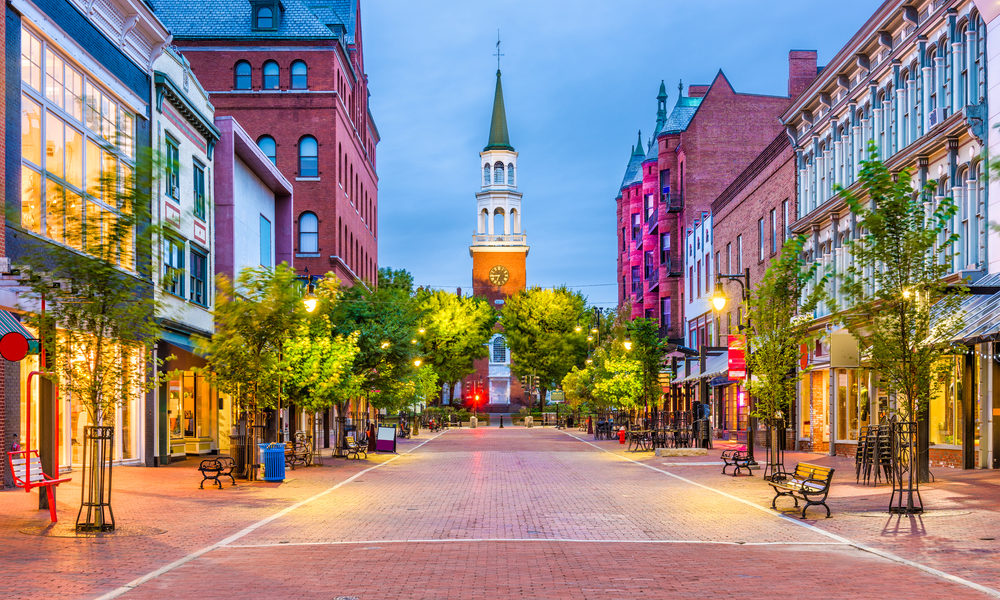Want to open a cannabis dispensary in Burlington, Vermont? It’s a lot easier than you think.
In fact, every license application that has come before Burlington’s Cannabis Control Commission has been approved. Why? Simple—the city only requires applicants to pass state approvals which are the most basic foundation in this industry.
More specifically, all applicants just need a business name, proposed hours, and a short series of yes or no questions. These questions ask if applicants plan to comply with Vermont’s state laws, such as ensuring no location is within 500 feet of a school.
The only reason municipalities can deny applications is if they don’t comply with local ordinances. As you can imagine, such situations are extremely rare.
In fact, according to a state database, there are currently 349 cannabis operations in Vermont (including retailers, growers, and manufacturers). Four of these operations take place in Burlington, with another four applicants currently pending.
“It’s a bit of a farce to look at these applications that are entirely redacted and to sit at a table, and know we do not have an option of voting no,” Joan Shannon (D – South District) said in a meeting of the cannabis commission.
City Councilor Gene Bergman (P – Ward 2) has called the application process “a sham,” furthering his statements with, “it’s a distraction and a waste of time for local officials to have to go through a process that isn’t real.
The biggest difficulty with applications is they don’t provide city officials with enough detail. Hell, they don’t even need to provide an address of where the business plans to operate.
“How can I tell if this is appropriate for this area?” Bergman questioned. “How can I tell who the people are and whether they have the background to be able to make this work?”
Vermont Cities Need More Information and Rules Concerning Their Industries, or There Could Be Trouble
These statements aren’t a detraction of recreational cannabis in Vermont. As Councilor Ben Traverse (D – Ward 5) noted, “[Cannabis businesses are] a welcome addition to our business community here. But the authority of our local control commission is incredibly limited.”
Ultimately, Vermont cities desire more control over cannabis operations. More so, they seek a similar level of control that they have over establishments serving liquor. An example of this control is a city has the ability to dictate what hours these establishments can operate.
“We don’t have that same authority with respect to cannabis establishments,” Traverse continued. “Our authority as a local control commission is basically just to confirm that the establishment has all of their local permits and inspections.” He later continued: “if permits are in place, there’s nothing we do other than to rubber stamp the application.”
This lack of control over a city’s industry can have a number of consequences. One of the most important is the oversaturation of products.
We saw something similar happen in California. The state approved more licenses than there was demand. In turn, the price of cannabis in California dropped so significantly, certain operators couldn’t get by even selling legally. In turn, many resorted to the black market.
Currently, Vermont is talking about expanding the role of the cannabis control commission. More so, they seek to receive more input from the public as a better means of ensuring safety.
Officials are also talking about adding more specific requirements on applications, such as where security cameras will be located and how a business plan handles cash management.
As Traverse noted, “I think that our communities have a right to know a bit more information about who’s applying for these licenses.”

